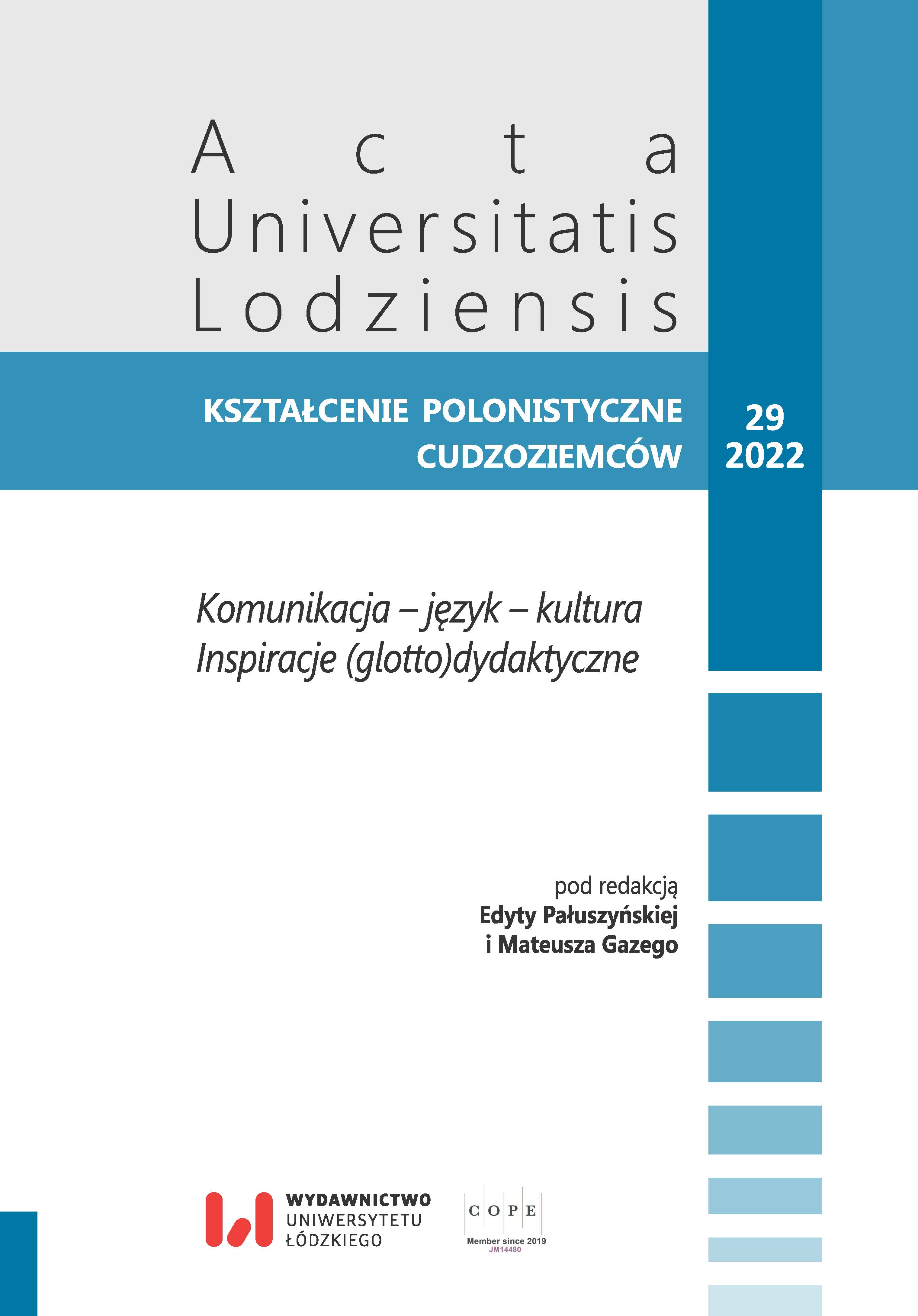Analiza potrzeb językowych a dydaktyka polszczyzny zawodowej i specjalistycznej z perspektywy języka medycznego. Badanie pilotażowe
DOI:
https://doi.org/10.18778/0860-6587.29.19Słowa kluczowe:
analiza potrzeb językowych, język polski do celów zawodowych, język polski medycznyAbstrakt
Współczesny rynek pracy wymaga posługiwania się językami obcymi w różnych kontekstach, często bardzo specyficznych i typowych dla wybranych projektów czy stanowisk. Żeby poznać te konteksty i określić potrzeby językowe wybranych grup uczących się, coraz częściej stosowana jest analiza potrzeb językowych. Metoda ta pozwala dostosować program i treści kursu do wyzwań, jakim w przyszłości będzie musiał sprostać uczący się. Studenci programów prowadzonych w języku angielskim na polskich uczelniach medycznych są jedną z grup, których potrzeb językowych dotychczas nie zbadano. Specyfika tej grupy polega na tym, że z jednej strony ma ona narzędzie potrzebne do studiowania – zna język angielski, w którym prowadzone są zajęcia teoretyczne, ale z drugiej strony – podczas zajęć klinicznych – pracuje z polskimi pacjentami, z którymi nie może komunikować się bezpośrednio i musi korzystać z pomocy tłumacza. Celem artykułu jest przedstawienie wyników jakościowego badania pilotażowego, które pokazują potrzeby tej grupy uczących się i określają ich braki w zakresie komunikacji z polskimi pacjentami podczas zajęć klinicznych i praktyk. Trzy wywiady z absolwentami i studentami dostarczyły wiedzy o tym, czy znajomość języka polskiego jest potrzebna i czy ma to wpływ na jakość kształcenia, a także kiedy i w jakich celach potrzebny był studiującym język polski. Badanie to jest inspiracją i wstępem do planowanego w ramach pracy doktorskiej projektu, którego celem jest rozpoznanie i opis potrzeb językowych tej grupy uczących się z uwzględnieniem kontaktów z pacjentami podczas ich edukacji w Polsce. Pilotaż pozwolił zweryfikować narzędzia badawcze i założenia projektu badawczego.
Bibliografia
Dudley-Evans T., St John M. J., 1998, Developments in English for Specific Purposes, Cambridge.
Google Scholar
Gajewska E., Sowa M., 2014 LSP, FOS, Fachsprache... dydaktyka języków specjalistycznych, Lublin.
Google Scholar
Haider B., 2008, Deutsch für Gesundheits- und Krankenpflegepersonal. Praca doktorska, Wiedeń.
Google Scholar
Huhta M., Vogt K., Johnson E., Tulkki H., Hall D. R., 2013, Needs analysis for language Course Design, Cambridge.
Google Scholar
Hutchinson T., Waters A., 1987, English for Specific Purposes. A learning-centrated approach, Cambridge.
Google Scholar
DOI: https://doi.org/10.1017/CBO9780511733031
Ligara B., Szupelak W., 2012, Lingwistyka i glottodydaktyka języków specjalistycznych na przykładzie języka biznesu, Kraków.
Google Scholar
Long M. H., 2005, Second Language Needs Analysis, Cambridge.
Google Scholar
DOI: https://doi.org/10.1017/CBO9780511667299
Vogt K., 2011, Fremdsprachliche Kompetenzprofile, Tübingen.
Google Scholar
Wilczyńska W., Michońska-Stadnik A., 2010, Metodologia badań w glottodydaktyce, Kraków.
Google Scholar
Pobrania
Opublikowane
Jak cytować
Numer
Dział
Licencja

Utwór dostępny jest na licencji Creative Commons Uznanie autorstwa – Użycie niekomercyjne – Bez utworów zależnych 4.0 Międzynarodowe.










